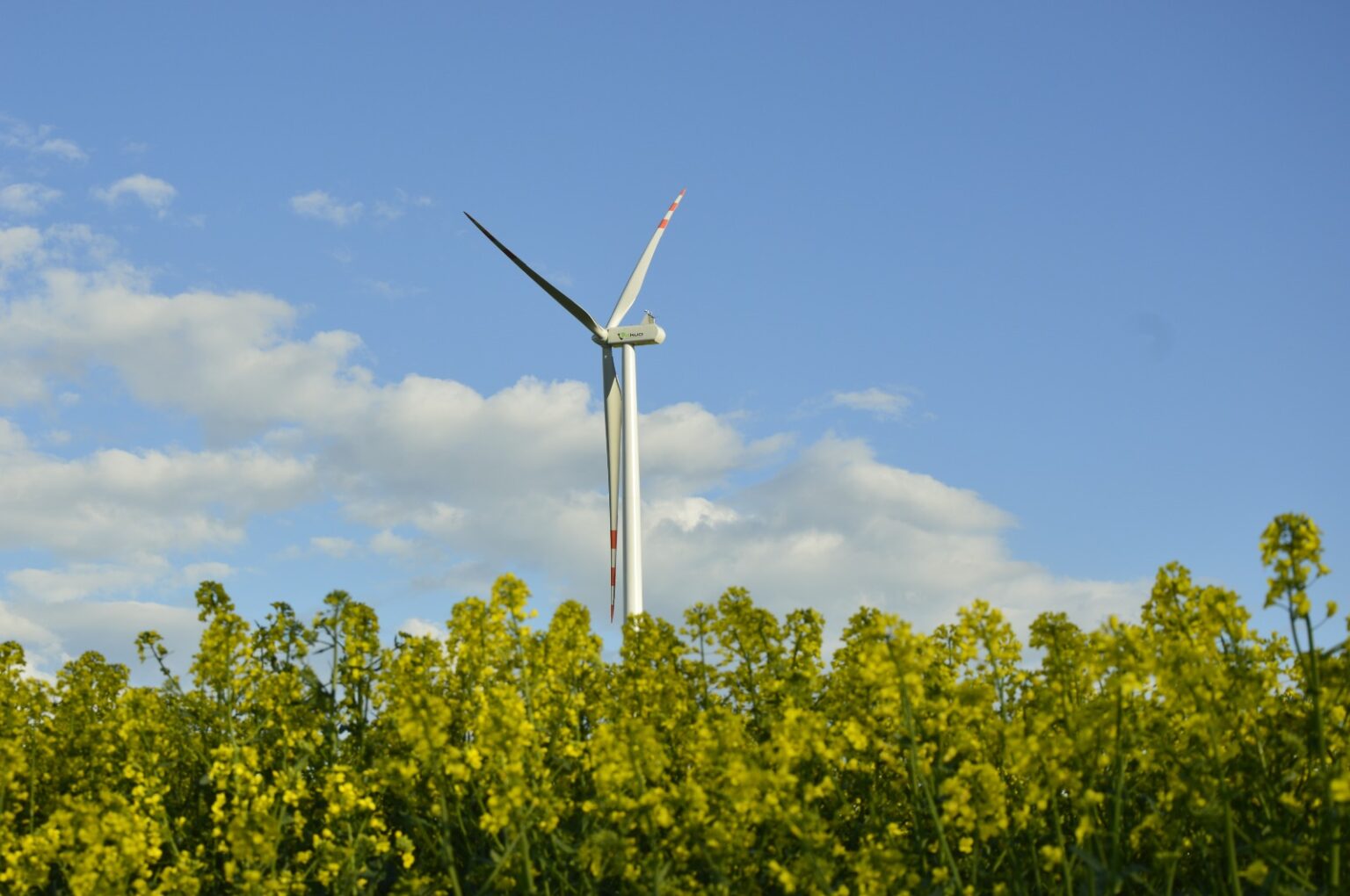Energa Group summed up 2022. It has reported that 30% of energy it generates comes from green sources.
Energa Group produced 4.5 TWh of electricity in 2022, and renewable wind farms, photovoltaics, hydropower accounted for 30 percent of this production. During this time, a total of PLN 3.3 billion was allocated for investments, which means an increase of 55 percent year-on-year.
“We have had a demanding year, which despite the challenges we have successfully completed. The Energa Group has maintained its stable position on the Polish energy market, built as part of the Orlen Group. We are strengthening the renewable energy sector and developing the low-carbon capacities necessary to balance the National Power System during the transition period. Thanks to the solid financial results we achieved in 2022, we can be sure that the strategic investments we have undertaken will be implemented according to plan,” emphasizes Zofia Paryła, President of the Management Board.
In 2022, Energa produced 4.5 TWh of electricity, of which 1.3 TWh came from renewable energy sources. Thanks to investments in new generation capacities and favorable weather conditions, production from wind farms increased by 5 percent year-on-year. Wind power accounted for 36 percent of the group’s renewable energy, while 56 percent came from hydropower. There was a clear increase in production in the strongly growing photovoltaics – PV farms still in 2021 produced approx. 5 GWh of energy, while in 2022 it was already approx. 26 GWh.
Moreover, the Energa Group has maintained a dynamic pace of investment in other areas as well. Projects for both zero-emission and low-emission sources were carried out. Work on two large photovoltaic farms – PV Gryf and PV Wielbark, which were launched at full capacity in 2023, were being finalized. The Mitra PV farm project has passed a milestone and obtained a construction permit.
At the same time, investments in low-emission gas and steam power plants in Grudziądz and Ostrołęka were developed. In May 2022, a construction contract was concluded for the former, which is tantamount to the beginning of construction work. In turn, in Ostrołęka in March last year, an order was issued to start work. For both investments, the first design work, supply of materials or equipment and construction work started.
Energa Group’s low-carbon sources, with a total installed capacity exceeding 1 GW, are essential for the country’s energy security. As the participation of renewables, whose output cannot be controlled, is growing in the National Power System, the balancing role of CCGT-type units, which are under construction in Grudziąc and Ostrołęka, will increase.
In 2022 Fitch Ratings has upgraded Energa’s rating to BBB+ with a stable outlook, underlining the importance of Energa Group as a key element for the implementation of the ORLEN2030 energy transition strategy. Whereas Moody’s confirmed Energa’s long-term rating in the domestic currency at the BAA2 level.
Strengthening relations with the US and building NPPs with France
On the occasion of the 19th anniversary of Poland joining the EU the country’s President and Prime Minister gave speeches. The President talked about strengthening ties with the United States, and the Prime Minister talked about the atom from France.
Poland will take over the presidency of the European Union in the first half of 2025 and, according to President Andrzej Duda, its priority should be to “strengthen Euro-Atlantic ties”. One of the priorities is to achieve a “fair but also smart energy transition”, including through nuclear energy.
Prime Minister Mateusz Morawiecki spoke about strengthening energy cooperation with European countries with an emphasis on nuclear energy. “We do not rule out cooperation with European countries, first of all with France,” he said. “At this point, we have already decided about building the first nuclear reactors with the US and its allies,” he stated.
Poland wants to have its first nuclear reactor in 2033 and 6-9 GW in 2043. Originally, the goal was to build NPPs in one and the same technology. However, the plan has changed and Poland decided that its first NPP will be built in American technology (AP1000 from Westinghouse), whereas about the second one, which is still up in the air, Warsaw wants to talk to other partners, including France’s EDF (EPR1/2). Polska Grupa Energetyczna and ZE PAK want to build two APR1400 reactors in Pątnów with the Korean KHNP, but a dispute over this technology with Westinghouse continues.
Polish Press Agency / Wojciech Jakóbik
The President signed a law to limit the production of single-use plastic
EU restrictions on the use of single-use plastic and the withdrawal of certain plastic products from sale is the main objective of the amendment to the Act on the Obligations of Businesses in the Field of Waste Management and on the product fee signed by President Andrzej Duda. The aim is to reduce the use of single-use plastic items.
The amended law provides, first of all, the obligation to inform consumers, through a clear marking on the packaging of a single-use plastic product, about the harm of its impact on the environment. This obligation will apply to such products as: wet wipes, tobacco products with filters containing plastic, cups for drinks or cutlery.
The amendment prohibits the placing on the market of single-use plastic products listed in the EU directive. This includes products such as cotton buds, cutlery, plates, straws, beverage mixers, sticks for balloons, food containers, and expanded polystyrene beverage containers and cups.
The new rules also introduce a fee-a maximum of PLN 1 – for some single-use products that will be given to customers. For example, the packaging in which drinks or food are served. Retail outlets will have to provide customers with an alternative to disposable plastic cups, which will either be made of biodegradable material or be reusable.
Businesses that market single-use plastic products will incur fees for running public education campaigns to reduce the use of plastic.
Ministry of Climate and Environment / Bartosz Siemieniuk

 PL
PL EN
EN





